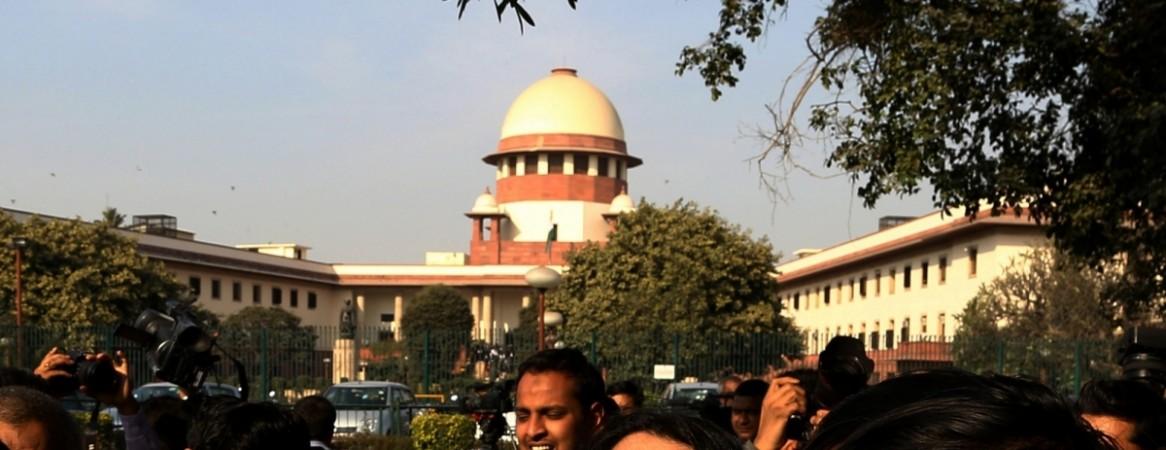
A five-judge bench of the Supreme Court on Thursday, September 6, decriminalised gay sex in what may turn out to be landmark judgment for the Lesbian, Gay, Bisexual, Transsexual, Transgender et al (LGBTQ+) community.
However, this does not mean that all gay sex is legal. Here are some things that should help differentiate between the two:
1. What is Section 377?
Section 377 of the Indian Penal Code (IPC) was formulated under British rule in 1861, and deals with sexual intercourse that can be considered " against the order of nature."
The law, modelled on Britain's Buggery Act of 1533, has commonly been used to persecute members of the LGBTQ+ community, with acts of gay sex being considered against the natural order.
2. Did the Supreme Court legalise gay sex?
The simple answer: Both yes and no. Yes in the case of consensual sex between two adults. No in the case of non-consensual sex, and especially of one or both of the parties involved are underage.
3. Who can be prosecuted for gay sex?
Anyone who forces himself or herself on a non-consenting adult of the same gender — both adult and minor — may still be prosecuted for molestation or even rape, depending on the severity of their actions.
Someone who has sex with minors of the same gender may also be liable to prosecution, except this time relevant sections from the Protection of Children from Sexual Offences (POCSO) Act may also be applicable.
Of course, consensual sex among adults of the same gender in a public place may also invite prosecution under charges of public indecency.
4. So what has changed this time?
As mentioned before, if two adults of the same gender decide to have consensual sex in the privacy of their home or in a private place, they cannot be prosecuted. This was not the case as long as Section 377 was in force.
5. Is Section 377 gone altogether?
No. Section 377 also governed instances of bestiality – people having sex with animals and the punishment for such acts. That part of the law is still in force.
[The author teaches Reporting and Editing at St Joseph's College (Autonomous).]














